‘The valor which secured national unity.’
In May 1865, Lt. Gen. Ulysses S. Grant, the new president, Andrew Johnson, and other dignitaries sat in a reviewing stand outside the White House.
Before them marched more than two hundred thousand soldiers of the victorious “Grand Armies of the Republic” in a triumphant two-day parade down Pennsylvania Avenue.
They had secured victory and the Civil War was over.
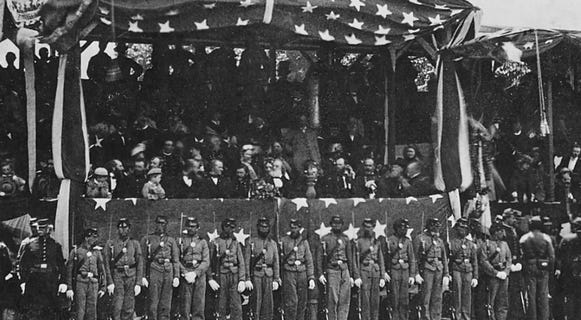
General Meade’s soldiers of the eastern theater of the war marched with great pageantry on the first day.
“There was an extensive flashing of drawn swords, bayonets and polished brass cannon in the clear sunlight,
“sections of pontoon bridges, and ambulances, and stretchers, and even heavy wagons were features in the procession.” — New York Times
Spectators threw flowers at the soldiers’ feet and sang patriotic songs as they passed by.
Abial Hall Edwards was one of those who marched on the first day.
He described the event in a letter to his sister:
“As we entered the City we met the crowd estimated at 50,000 people.
“The street was gaily decorated over the column and so was the houses.
“The first that met us was a banner inscribed ‘Welcome Brave Heroes Welcome Home.’
“The next was ‘The only national debt we never can pay is the debt we owe our Brave soldiers.’
“But the most interesting was as we came to the stage on which the Pres. and Lieut. Gen. Grant sat.
I had a good view of them…
“It was a sight long to be remembered.
“[The one] thing to mar our pleasure was the thought that our beloved President A. Lincoln should have died [and not seen] this which his hard work has done for us.”
The second day was given to General Sherman, who had worried that his undisciplined ‘western army’ of sixty-five thousand men would make a poor showing.
And they were a stark contrast to what had come the day before.
Sherman’s men wore tattered clothing.
Some carried looted livestock on their shoulders, with hams and chickens hung on their bayonets.
They marched to “John Brown’s Body” and “The Battle Hymn of the Republic.”
And freed slaves brought up the rear.
But Sherman was thrilled, calling them “the most magnificent army in existence...”
From the New York Times:
“They feel proud of their achievements, proud of the triumphant termination of this great war, proud of the country which they have saved, proud of the freedom and unity which their valor has secured to the republic.”
The mustering out would begin the next day.
The war was over.
It was time to go home.
******************************
I’ll see you tomorrow.
— Brenda



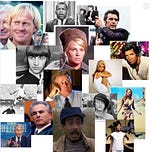

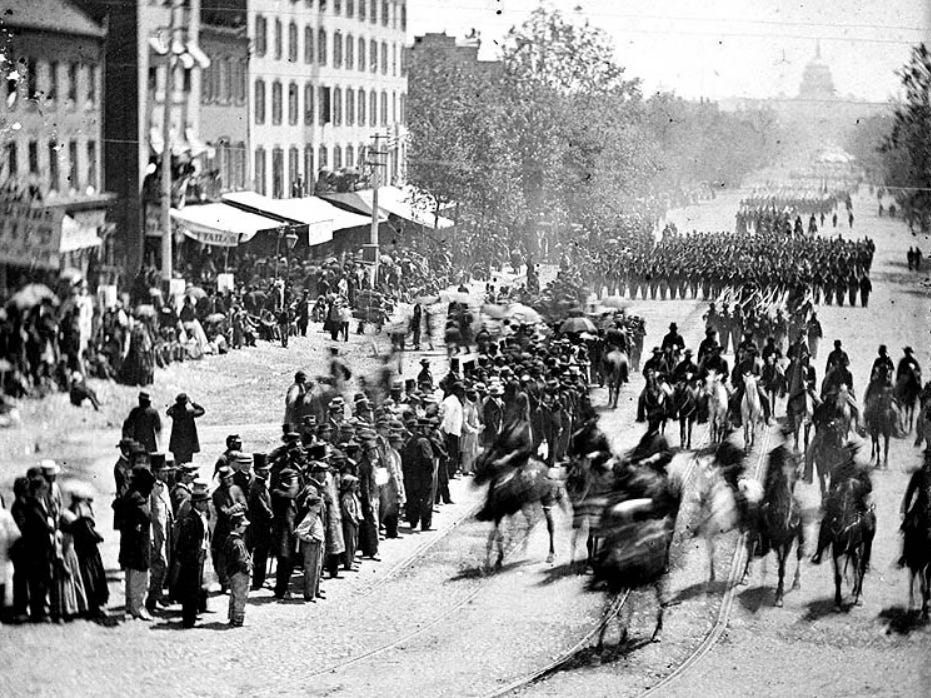
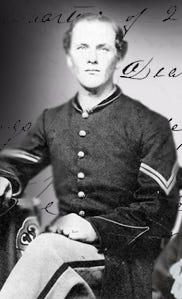

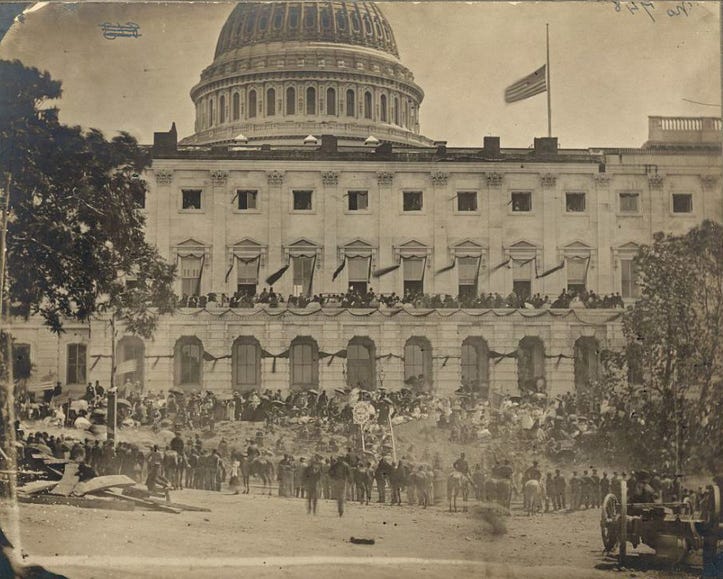
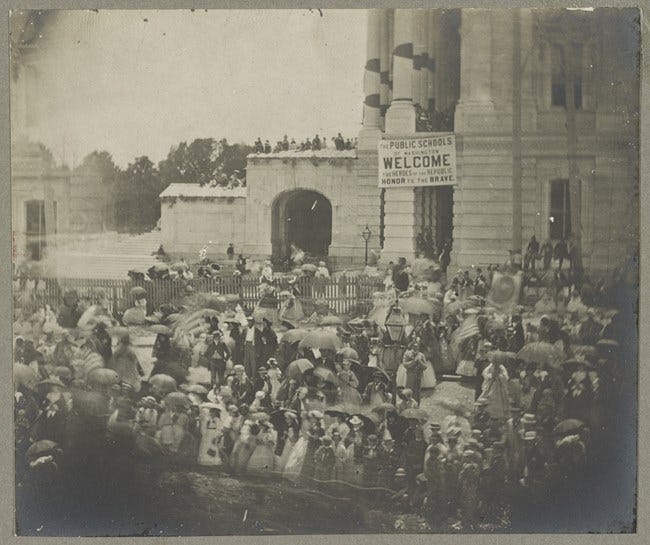
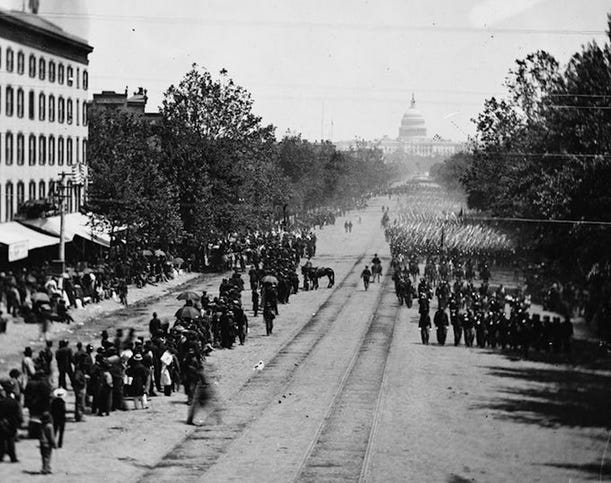
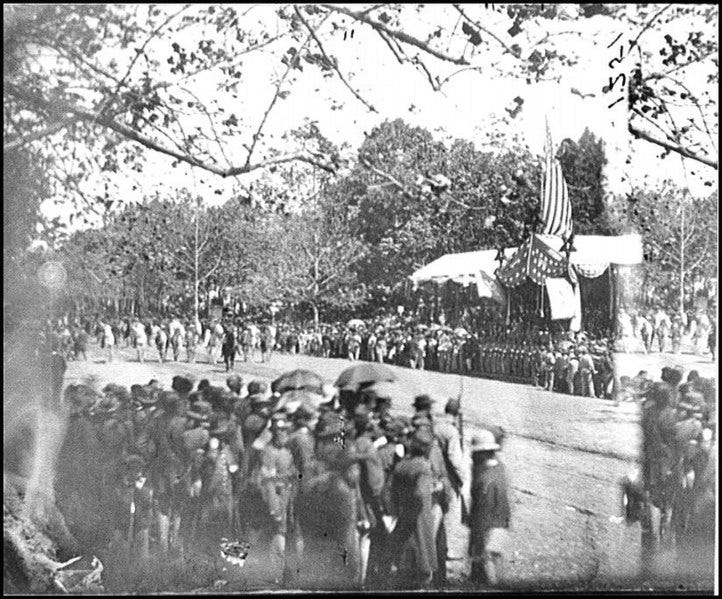
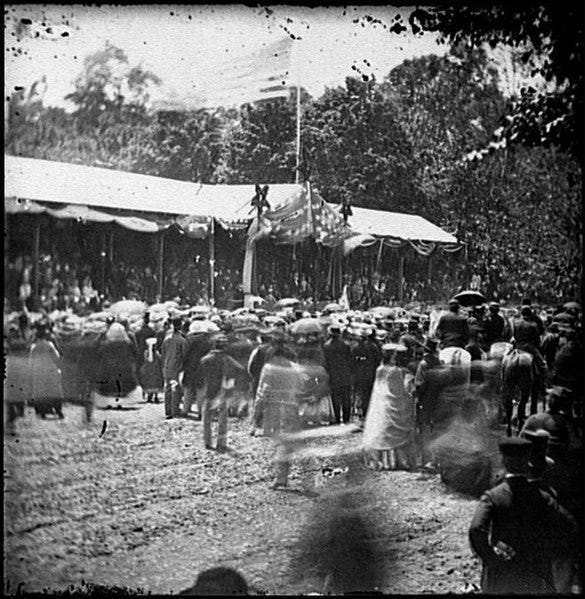
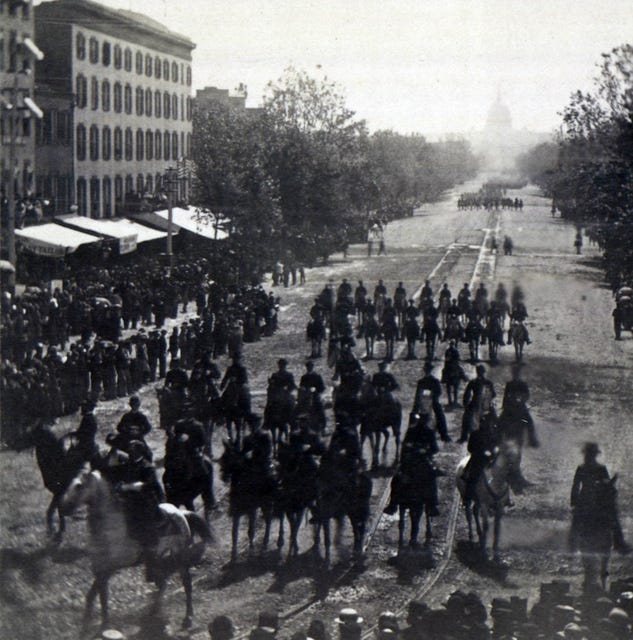
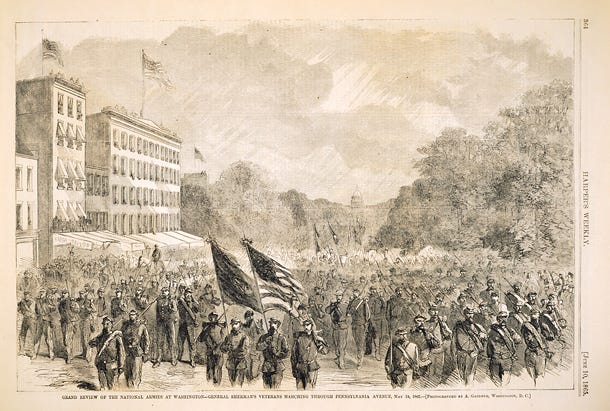
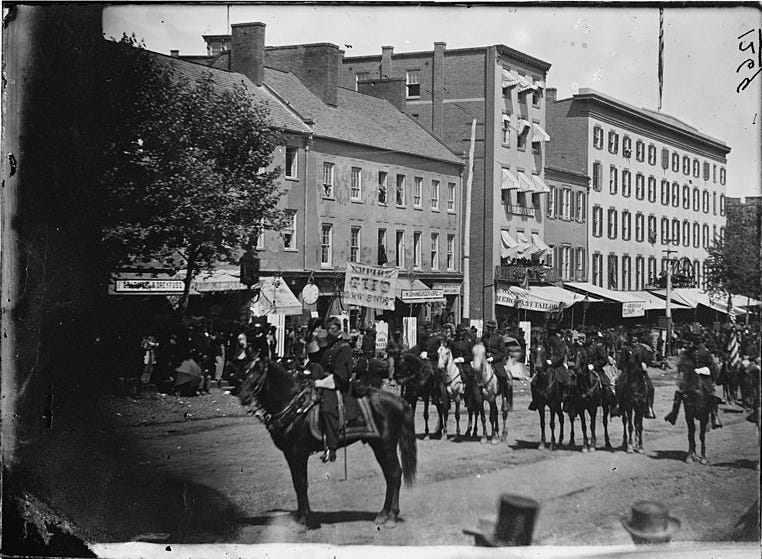
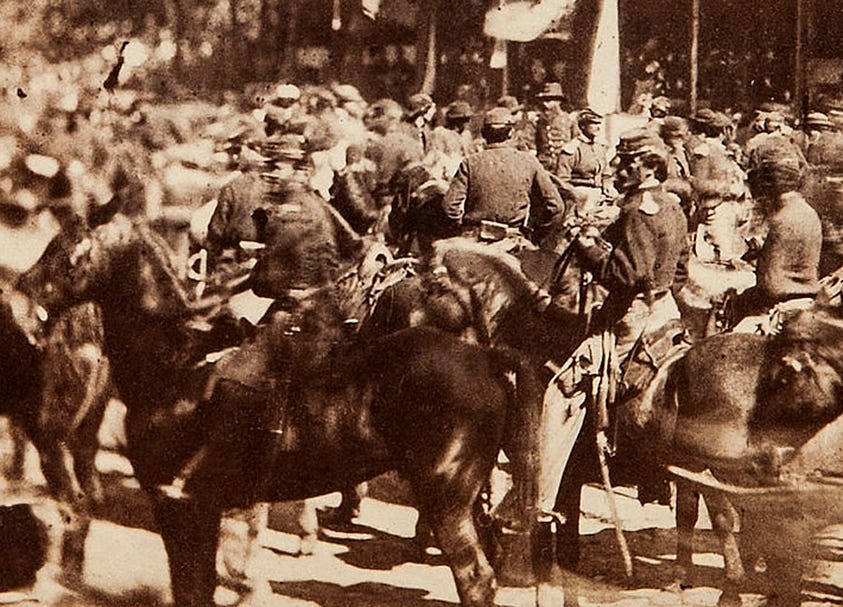









Share this post